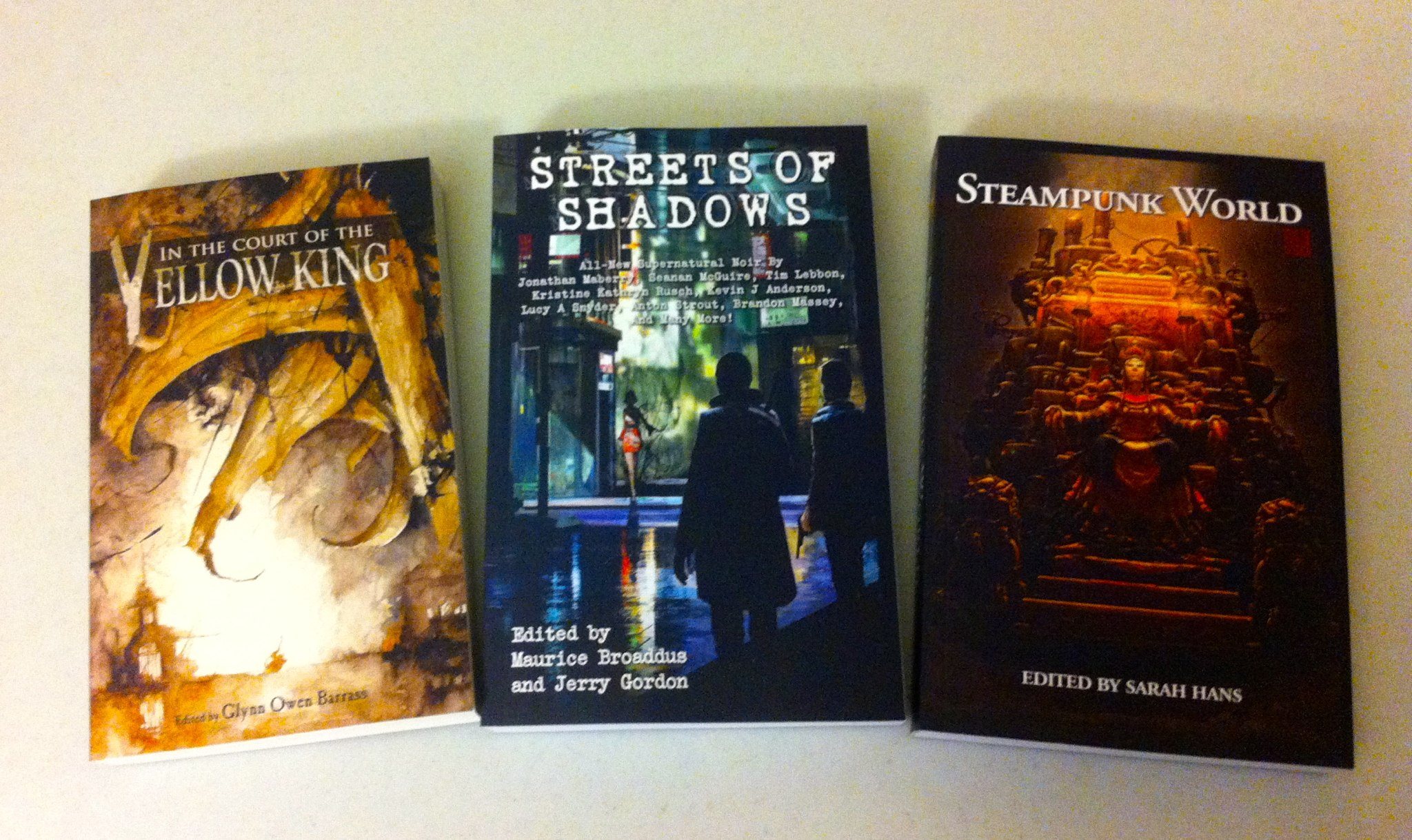
A themed anthology is a book-length work containing short stories, essays or poetry all written by different authors on the same theme, concept or topic. Themed short story anthologies are very common, and make up the majority of anthologies from major publishers that readers find on bookstore shelves.
Why are themed anthologies so popular? Themes gives books a focus that is helpful to editors, writers, and readers alike. The theme helps writers and editors create a book that feels more like a cohesive work rather than a random assortment of unconnected writing. The theme helps to provide a satisfying reading experience. Readers know going in whether the stories are likely to be about subjects that they enjoy (“Hey, what’s that book you’re reading?” “It’s about dragons!” “Cool, I love dragons! Can I borrow it sometime?”) So, an anthology with an appealing theme and attractive cover is far more likely to sell than an anthology without a strongly-conveyed theme.
Publishers and editors frequently brainstorm a theme that they think readers will enjoy. Then they either put out an open call for submissions detailing their needs to prospective writers, or they send out private invitations to a group of authors to write new work based on the theme. Editors who know a large number of good writers and who are interested in putting an anthology together quickly and efficiently will often rely on the invitation-only model. Editors who are less connected or who are interested in finding new voices will put out open calls for submissions (open calls for submissions vastly increase an editor’s workload). One the book is complete, the publisher comes up with an appropriate title that immediately and succinctly conveys the theme of the anthology to prospective readers.
What kind of theme could an anthology be centered on? Practically anything, as long as the publisher thinks there are enough readers who enjoy the topic to support the book. For instance, an anthology titled New Yorkers on New York might contain stories, essays, and poetry written by writers living in New York City about that city; readers living in New York (or who used to live there, or who want to live there, etc.) might be very interested in the anthology, especially if the editor recruited popular authors for the book. Conversely, the anthology Civil War Fantastic also conveys its theme: fantasy, science fiction, and supernatural horror taking place during (or featuring historical figures from) the American Civil War. The Cat Crimes series conveys two things many mystery readers love: felines and dastardly deeds.
Theme fiction anthologies generally contain 12-24 short stories and are usually at least 70,000 words in length. If an anthology is too short, readers may feel dissatisfied and unconvinced that they’ve gotten their money’s worth. If an anthology is much longer than 120,000 words, production costs may rise to a point that makes it difficult to sell the book at a price that readers are willing to pay. Furthermore, the longer an anthology is and the more writers are involved, the more complicated the project gets, and it will take the editor and publisher more time and work to get the book to market.
If an editor or publisher is more ambitious, he or she may try to put together a shared-world anthology in which all the authors are working with the same characters and setting. Media tie-in anthologies that offer stories about shows such as Doctor Who or The X-Files are by default shared-world anthologies, as are anthologies that build upon other’s writing, such as that of H.P. Lovecraft and Robert Chambers. In any case, the shared world counts as a shared theme.
From a writer’s perspective, themed anthologies can be a whole lot of fun to write for, particularly if the theme is something you personally enjoy. Sometimes, as a result of trying to come up with a popular theme, publishers send invitations for themes that might seem a little tired, such as alien invasions or vampires or zombie apocalypses. Writers often take these tired themes as a personal challenge to see how they can approach the theme backwards or sideways to write something fresh and unexpected (but not so unexpected that the editor rejects the story for not meeting the theme!)
If you’re a newer writer, the prevalence of invitation-only anthologies can be extremely frustrating. The key is to get yourself added to the invitation list. If you’re interested in writing for themed anthologies, pay attention to who’s publishing them. If an editor has put out a couple of themed anthologies, chances are good that he or she will do more. Send the editor a polite, professional query letter that briefly explains your interest and why you’re qualified to write for him or her. If you impress the editor, chances are good that he or she will give you a shot for the next project.
Leave a Reply
You must be logged in to post a comment.